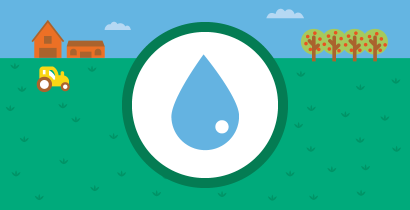Plant-based protein alternatives pave the way for sustainable food patterns
Last Updated : 29 January 2020The EU-funded PROTEIN2FOOD project, will present today their final results in the wider context of Europe’s protein transition at the conference: “Food for the future: Accelerating the protein transition”, taking place in Brussels, Belgium.

PROTEIN2FOOD’s results
Meeting the globally growing demand for nutritious, affordable and environmentally sustainable foods, especially proteins, is a unique challenge, that the EU funded project PROTEIN2FOOD has been committed to solving for the past five years. Using high-quality protein seed crops (i.e. quinoa, amaranth and buckwheat) and high-quantity protein legumes (i.e. lupin, faba bean, lentils), the project has worked with protein-rich food crops and developed new plant-based protein-rich food prototypes, such as novel lentil-based infant formula and a milk alternative. With these products, the project aims to increase the choices of plant-based protein products, to help consumers decrease their animal-protein intake.
Additionally, PROTEIN2FOOD has achieved the following results:
- Identified important genetic markers for protein production in the selected crops. This has resulted in the discovery of two quinoa varieties that have much higher protein content compared to other varieties, which could help enhance protein production in Europe.
- Developed environmentally friendly and resource efficient processing methods, such as aqueous processing to create new lentil, faba bean and lupin protein isolates, which were not previously available to the market. These processes involved fewer processing steps, consider side streams and increase ingredient yields.
- Researched market conditions and socio-economic aspects of the protein crops, which showed that quinoa was the crop most suitable across 70% European arable land, followed by blue lupine (23%).
- Shown that PROTEIN2FOOD alternatives, such as the lentil-based milk alternative are better for the environment than soy-based and traditional animal-based protein products.
Dr. Emanuele Zannini, scientific advisor on PROTEIN2FOOD and senior research coordinator at the University College of Cork, said: “We have developed new generations of nutritious food prototypes that are both respectful of natural resources, are tastier and more sustainable than alternatives already on the market. PROTEIN2FOOD has developed an impressive amount of knowledge that we look forward to sharing at the final conference”.
A policy-oriented conference
The conference is free of charge and aims to bring together researchers, policy makers and industry representatives to showcase the project’s results, discuss the opportunities and barriers of transitioning towards more high-quality, protein-rich plant-based foods and examine the policy tools and implications that can help Europe’s protein transition stays on track.
The event will feature Nick Jacobs, Director of the International Panel of Experts on Sustainable Food Systems (IPES-Food) and Professor Sir Charles Godfray, Director of the Oxford Martin School and Director of Oxford Martin Programme on the Future of Food as keynote speakers.
ENDS
About PROTEIN2FOOD
PROTEIN2FOOD is led by the University of Copenhagen and consists of a team of 18 partner institutions from 13 countries. PROTEIN2FOOD is a unique project in that it brings together actors across the food value chain, even small-to-medium enterprises (SMEs) to develop innovative high-quality, protein-rich food crops and foods for the benefit of human health, the environmental and agricultural biodiversity. The project’s aim was to increase the choices for plant-based protein products, to help consumers decrease their animal-protein intake.
Website: www.protein2food.eu
Twitter: @SciFoodHealth
Contacts
Davide Carrino
Senior Manager, Media and Communication, European Food Information Council (EUFIC)
E-mail: marie-christine.thurm@eufic.org
Raymond Gemen
Senior Manager, Food & Health Science, European Food Information Council (EUFIC),
E-mail: Raymond.gemen@eufic.org
Dr. Emanuele Zannini
PROTEIN2FOOD Scientific Advisor, School of Food and Nutritional Sciences, University College Cork
E-mail: E.Zannini@ucc.ie
Sabrina G Skjødt Apager Ruzanski
PROTEIN2FOOD project manager, Department of Plant and Environmental Science, University of Copenhagen, Denmark
E-mail: sabber@plen.ku.dk



